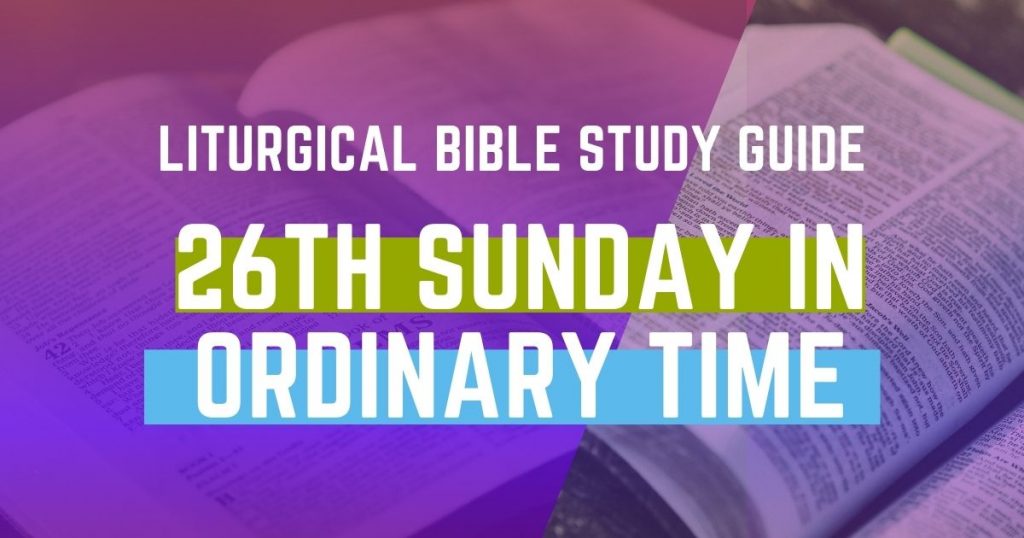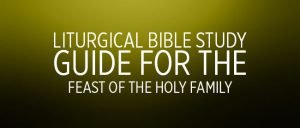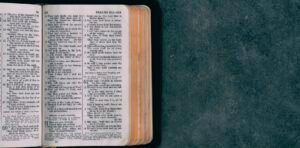1st Reading – Numbers 11:25-29
The book of Numbers is a narrative account running from the 2nd year after the Israelites left Egypt up to almost the end of Moses’ life: a total of about 39 years’ wandering in the wilderness. It takes its name in the Hebrew Bible from bammidbar (which means “in the wilderness”). The Greek translation (the Septuagint) however, calls it “Numbers,” and the Latin follows suit. The title “Numbers” is really less than satisfactory, because the counting of the people doesn’t take up much of the book. The book is really a history of the main events of the wanderings in the desert.
The book begins with God’s express command to Moses to make a census of the people (thus, Numbers). The effect of this census shows that God has indeed kept His promise to Abraham (Genesis 22:17) “I will indeed bless you, and I will make your descendents as countless as the stars of the sky and the sands of the seashore: your descendents shall take possession of the gates of their enemies”. The 70 member family of Jacob which had entered Egypt, now, some 450 years later, numbers around 600,000.
The Book of Numbers divides into 3 parts:
- In Sinai (chapters 1-9);
- The Journey Through the Wilderness (chapters 10-21); and
- On the Plains of Moab (chapters 22-36).
Today’s reading comes from the account of the journey through the wilderness. About 11 months after they arrived at Sinai, the Israelites broke camp and set out on their journey to the promised land, carrying the Ark of the Covenant and the Tabernacle (a tent) and the associated ritual vessels and vestments. As usual, some of the voyagers are grumbling about the food. Moses becomes frustrated and talks with God about it: “‘Why do you treat your servant so badly?’ Moses asked the LORD. ‘Why are you so displeased with me that you burden me with all this people? Was it I who conceived all this people? or was it I who gave them birth, that you tell me to carry them at my bosom, like a foster father carrying an infant, to the land you have promised under oath to their fathers? Where can I get meat to give to all this people? For they are crying to me, ‘Give us meat for our food.’ I cannot carry all this people by myself, for they are too heavy for me. If this is the way you will deal with me, then please do me the favor
of killing me at once, so that I need no longer face this distress’” (Numbers 11:11-15). God told Moses to gather 70 elders and that He would spread the burden of the people among them so Moses would only have to bear a portion. Moses gathered the 70 around the meeting tent.
2nd Reading – James 5:1-6
This week we complete our study of the Epistle of James in this cycle. In fact, the Sunday readings won’t contain James again until the 3rd Sunday of Advent in Cycle A. The main purpose of this epistle is the teaching of morality and self-discipline. The sacred writer speaks with great severity, not mincing his words, in order to make people see that actions of the kind he condemns are incompatible with the profession of the Christian faith.
In today’s reading the author again criticizes the sins the well-to-do. He reproves their pride, vanity and greed and their pleasure seeking; warning them that the judgment of God is near at hand.
People who are well-to-do should use their resources in the service of others. In this connection, the Church teaches that “They have a moral obligation not to keep capital unproductive and, in making investments, to think first of the common good. … The right to private property is inconceivable without responsibilities to the common good. It is subordinated to the higher principle which states that goods are meant for all” [Sacred Congregation for the Doctrine of Faith (22 March 1986), Libertatis conscientia, 87].
Gospel – Mark 9:38-43,45,47-48
The 24th Sunday in Ordinary Time (2 weeks ago) Gospel reading contained the first of three instructions to the apostles: “If you are to be a follower of Jesus you must deny yourself, take up your cross and follow in His footsteps.”
Last week we heard the second instruction: “If you wish to be a leader, you must remain humble and be the servant of all.”
This week we continue with this second instruction.
Bible Study Guide from Fr. Cielo Almazan





